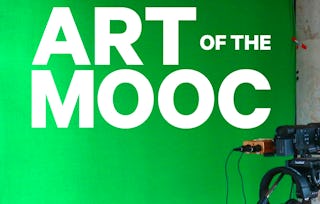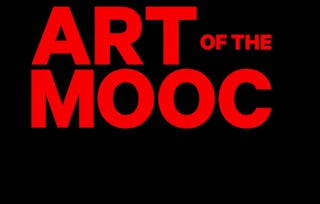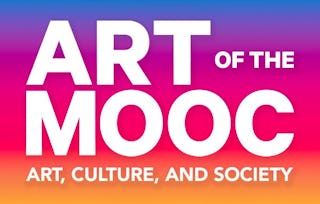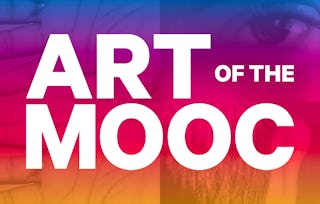Les étudiants de ce cours peuvent s'essayer à leurs propres interventions sonores et compositions musicales, ou simplement se concentrer sur l'apprentissage de diverses traditions musicales, l'expérimentation sonore et les phénomènes acoustiques dans la vie de tous les jours. Conçu par Pedro Lasch, artiste et professeur à Duke, et Mathias Hinke, compositeur à l'UdK, ce cours est également co-enseigné par l'universitaire et musicien Jace Clayton (DJ Rupture) et la conservatrice Candice Hopkins (Documenta 14). Les conférences établissent un lien entre les principaux développements artistiques des dernières décennies et des idées plus larges sur le son dans des contextes sociaux et spatiaux spécifiques. Le cours comprend également des présentations d'invités de penseurs et de praticiens clés, tels que : Christopher DeLaurenti, Jen Delos Reyes, Tina Haver Currin, Quran Karriem, Christina Kubisch, Thomas Kusitzky, Scott Lindroth, Mark Anthony Neal, Bill Seaman et John Supko. Comme l'indique le titre "ART of the MOOC", les apprenants et les participants sont encouragés à considérer le MOOC lui-même comme un support d'art public. Cela se produit principalement à travers les composantes pratiques optionnelles du cours, les productions de projets locaux, les échanges globaux et le retour d'information critique. Bien qu'aucune expérience préalable en matière de production sonore ou de musique ne soit requise, les projets offrent également des options stimulantes pour les apprenants avancés.


L'art du MOOC : Expériences sonores


L'art du MOOC : Expériences sonores
Ce cours fait partie de Spécialisation "L'art du MOOC : Art, culture et société"



Instructeurs : Pedro Lasch
8 668 déjà inscrits
Inclus avec
77 avis
Compétences que vous acquerrez
- Catégorie : Musique du monde
- Catégorie : Médias électroniques
- Catégorie : Créativité
- Catégorie : Composition musicale
- Catégorie : Multimédia
- Catégorie : Musique
- Catégorie : Performance musicale
- Catégorie : Histoire de la musique
- Catégorie : Esthétique
- Catégorie : Médias et communications
- Catégorie : Diversité culturelle
- Catégorie : Apprentissage interactif
- Catégorie : Arts du spectacle
- Catégorie : Affaires publiques
- Catégorie : Recherche
- Catégorie : Culture
- Catégorie : Expérimentation
- Catégorie : Théorie de la musique
- Section Compétences masquée. Affichage de 11 compétence(s) sur 18.
Détails à connaître

Ajouter à votre profil LinkedIn
8 devoirs
Découvrez comment les employés des entreprises prestigieuses maîtrisent des compétences recherchées

Élaborez votre expertise du sujet
- Apprenez de nouveaux concepts auprès d'experts du secteur
- Acquérez une compréhension de base d'un sujet ou d'un outil
- Développez des compétences professionnelles avec des projets pratiques
- Obtenez un certificat professionnel partageable

Il y a 8 modules dans ce cours
Ce module présente les quatre co-enseignants du cours (Lasch, Clayton, Hinke, Hopkins), ainsi que cinq concepts analytiques que nous utiliserons tout au long des sections et des projets : Fréquence, Perspective, Cadre matériel, Cadre temporel et Concurrence. Ces concepts sont conçus pour englober un large éventail de phénomènes acoustiques au sein de l'expérience spatiale et sociale
Inclus
2 vidéos3 lectures1 devoir
Cette leçon développe des termes spécifiques ou "éléments sonores" tels que l'accord, la résonance, le silence, l'improvisation, le rythme, la synchronisation, la durée et le timbre. Elle aborde également les outils traditionnels de la production sonore, des instruments de musique à l'échantillonnage, aux auto-tunes et à d'autres technologies plus récentes. Le module se termine par une exploration du rôle du son dans des contextes et des pratiques sociales non musicales spécifiques, telles que les applaudissements, la culture des fans, le sport, les embouteillages, les manifestations de masse, et bien d'autres encore.
Inclus
10 vidéos1 devoir
La composante pratique de cette section est facultative et demande aux apprenants de choisir un espace avec des "règles sonores" spécifiques et de changer ou de modifier ces règles par une expérimentation réelle.
Inclus
1 vidéo1 lecture1 devoir
Cette leçon commence par mettre l'accent sur la relation entre les pratiques expérimentales et les partitions ou les systèmes de notation. Elle examine également la manière dont le son a été utilisé et compris par les artistes dans des contextes urbains spécifiques, tels que les ports, les gares et les aéroports, ainsi que dans des environnements ruraux, y compris les forêts, les jardins et le paysage au sens large. Nous conclurons par un examen de la manière dont le son et la musique voyagent, que ce soit à travers les populations qui les produisent ou les objets et les fichiers numériques utilisés pour les enregistrer et les partager.
Inclus
8 vidéos1 devoir
La partie pratique est facultative et invite les apprenants à "effacer un son dans l'espace" grâce à une série de stratégies possibles.
Inclus
1 vidéo1 lecture1 devoir
Cette leçon donne un aperçu des méthodes et des idées des différentes écoles d'écoute. Elle présente également un examen critique du terme "musique du monde" et de son évolution par rapport à la mondialisation économique et culturelle. Avec cette perspective globale à l'esprit, les dernières parties de nos cours sont consacrées à l'expérience acoustique et à l'expérimentation musicale sur le net, la radio, les réseaux cellulaires et les divers médias sociaux, y compris tous les pépins, accidents et échecs que nous associons à ces plates-formes.
Inclus
8 vidéos1 devoir
La composante pratique de ce module est facultative et demande aux apprenants de produire leur propre expérience avec les médias et les défaillances techniques.
Inclus
1 vidéo1 lecture1 devoir
Ce module est facultatif et ne s'adresse qu'à ceux qui souhaitent mettre en pratique ce qu'ils ont appris pendant le cours dans un projet final plus ouvert et plus ambitieux. Deux options sont proposées, l'une étant votre projet le plus ambitieux et l'autre basée sur la création et l'utilisation de vos propres instruments de musique.
Inclus
1 vidéo2 lectures1 devoir
Obtenez un certificat professionnel
Ajoutez ce titre à votre profil LinkedIn, à votre curriculum vitae ou à votre CV. Partagez-le sur les médias sociaux et dans votre évaluation des performances.
Instructeurs



En savoir plus sur Histoire
 Statut : Essai gratuit
Statut : Essai gratuitDuke University
 Statut : Essai gratuit
Statut : Essai gratuitDuke University
 Statut : Essai gratuit
Statut : Essai gratuitDuke University
 Statut : Essai gratuit
Statut : Essai gratuitDuke University
Pour quelles raisons les étudiants sur Coursera nous choisissent-ils pour leur carrière ?

Felipe M.

Jennifer J.

Larry W.

Chaitanya A.
Avis des étudiants
- 5 stars
83,11 %
- 4 stars
12,98 %
- 3 stars
2,59 %
- 2 stars
1,29 %
- 1 star
0 %
Affichage de 3 sur 77
Révisé le 19 nov. 2019
A very well put together overview of experimental sound techniques and case studies
Révisé le 26 août 2019
This has been the best course so far that I have came across online.
Révisé le 9 juin 2018
Super interesting - lots of info that was new to me.

Ouvrez de nouvelles portes avec Coursera Plus
Accès illimité à 10,000+ cours de niveau international, projets pratiques et programmes de certification prêts à l'emploi - tous inclus dans votre abonnement.
Faites progresser votre carrière avec un diplôme en ligne
Obtenez un diplôme auprès d’universités de renommée mondiale - 100 % en ligne
Rejoignez plus de 3 400 entreprises mondiales qui ont choisi Coursera pour les affaires
Améliorez les compétences de vos employés pour exceller dans l’économie numérique
Foire Aux Questions
Vous pouvez accéder gratuitement à toutes les vidéos, lectures et discussions. Vous pouvez également soumettre des devoirs et obtenir une note gratuitement. Si vous souhaitez obtenir un certificat de cours, vous pouvez acheter le cours pour 49 $ ou demander une aide financière.
Non. L'achèvement d'un cours Coursera ne vous donne pas droit à un crédit académique de Duke ; par conséquent, Duke n'est pas en mesure de vous fournir un relevé de notes universitaire. Cependant, votre certificat électronique sera ajouté à votre page Accomplishments - à partir de là, vous pouvez imprimer votre certificat ou l'ajouter à votre profil LinkedIn.
Pour accéder aux supports de cours, aux devoirs et pour obtenir un certificat, vous devez acheter l'expérience de certificat lorsque vous vous inscrivez à un cours. Vous pouvez essayer un essai gratuit ou demander une aide financière. Le cours peut proposer l'option "Cours complet, pas de certificat". Cette option vous permet de consulter tous les supports de cours, de soumettre les évaluations requises et d'obtenir une note finale. Cela signifie également que vous ne pourrez pas acheter un certificat d'expérience.
Plus de questions
Aide financière disponible,




